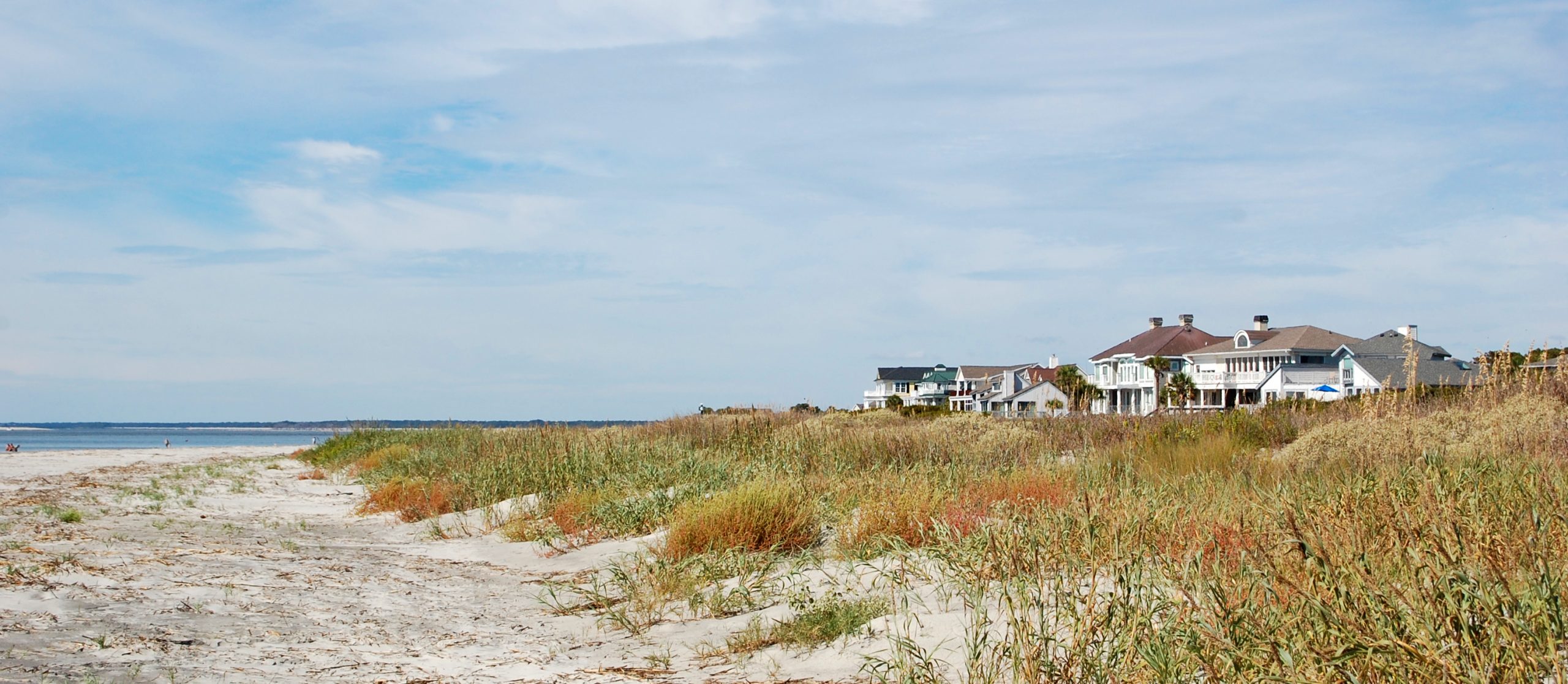What’s the Future of the Real Estate Market?
By: Marc Chafe, Seabrook Island Real Estate Broker Agent

“How long will this market last?” “When will the supply increase?” “Will the prices keep going up?” and “When will the bubble burst?” These are the questions I hear every day. And when I hear them, I can’t help but think of what my financial advisor tells me when I ask similar questions about the stock market or retirement.
Each time his line is, “If I knew what the market was going to do tomorrow, I wouldn’t need you as a client.” I’ll try to take a softer approach. As a Seabrook Island Real Estate agent with more than two decades of experience, I have seen it all when it comes to the housing market. So, here are a few things to know about the current housing market’s key drivers and what you can likely expect to see in the future as a result.
2021 Real Estate Market Predictions
We all lived through the housing boom in the early 2000s. People were trading up and cashing out paper value profits. Then the bubble burst. During those down days of the real estate market, my business partner and I took to selling foreclosures. We had front-row seats to the madness that caused that collapse.
People are curious about what the future holds for this booming market, characterized by above-list-price sales, bidding wars, soaring demand, and low interest rates. Google searches indicate that many are wondering how long it can sustain itself. The good news is that while we may not have such a highly competitive market forever, the current boom is significantly more stable. Here’s why:
Stricter Lending Standards Will Keep the Market Stable
In the early 2000s, banks were making loans with reckless abandon. If appraisals even happened, they were often driven by price opinions done at 30 MPH. Buyers were over-buying and overpaying. Credit checks were often satisfied with a check for a pulse. Homeowners had a generational mentality that the value of their homes would cover their retirement.
Unfortunately, cashing out house value for travel and the purchase of depreciating assets simply couldn’t be sustained. The market adjusted, and values came back to earth. And that brought us lots of foreclosures. This time the banks may have actually learned their lessons, as have consumers. Banks have since tightened their mortgage lending standards with stricter income, credit, and asset checks to help ensure continued market stability.
Limited Supply of Housing
One issue perpetuating the effects of the recession years ago was the surplus of foreclosures that then increased the number of properties available across the board. Most of these homes actually went for about 90-95% of ask or “market value”, selling fairly quickly and easily. There was just a surplus of them.
That’s not the case for today’s market. We don’t have the surplus of properties we did the last time. Our housing supplies are tight. Buyers are putting down much larger down payments now, if not simply paying in cash. And in the Charleston real estate market and beyond, builders aren’t just speculating, they are building to meet demand.
Low-Interest Rates
Much of the market growth can be attributed to pandemic-related drivers. When COVID first hit the US in early 2020, the real estate industry market became stagnant for some period as families remained in quarantine. Over the past few months, though, buyers have been taking advantage of record-low interest rates. As a result, home sales have rapidly climbed (reaching the highest level in years).
These low rates have allowed many people to get the home of their dreams at a price that is within reach. Rates have since remained at (or below) the 3% line and show no signs of changing, encouraging many more homebuyers to still take advantage.
The Bottom Line
People are curious about what the future holds for this booming market, characterized by above-list-price sales, bidding wars, soaring demand, and low interest rates. But the bottom line is that the current boom is more stable because of these market conditions. While price growth may not happen at such an accelerated pace, it will likely continue. Lower interest rates are the draw and not easy credit. COVID changed our collective priorities. And people are being smarter.
For these reasons and some I am sure I have missed, the Charleston area real estate market, including Seabrook real estate, should stay hot. Of course, things can and do change. This market could slow or worsen. We just don’t know. But for now, this is perhaps one of the best times to sell and take advantage of the current state of the housing market.
If you are even lightly considering the idea and want to discuss your situation and property, please do not hesitate to contact me. My advisor can’t predict the future, and neither can I, but I can give you a good idea about the present. Let’s talk.
About the Author, Seabrook Real Estate Agent

Twenty years ago, on his fourth visit to the island, Marc Chafe and his family bought a vacation home for sale on Seabrook Island, hoping one day to retire in our oceanfront community. As it turns out, the Chafes decided not to wait for retirement and relocated full-time with their three children. Marc is an enthusiastic member of the Seabrook Island Club, and can often be found on a morning stroll down the beach. A talented Seabrook Island Real Estate broker/agent with almost thirty years of experience, Marc is a helpful guide for those interested in purchasing their own piece of property on Seabrook Island, SC.
CONTACT MARC
Email: marc.chafe@comcast.net
Office Phone: 843.768.2560
Cell Phone: 843.364.7387

